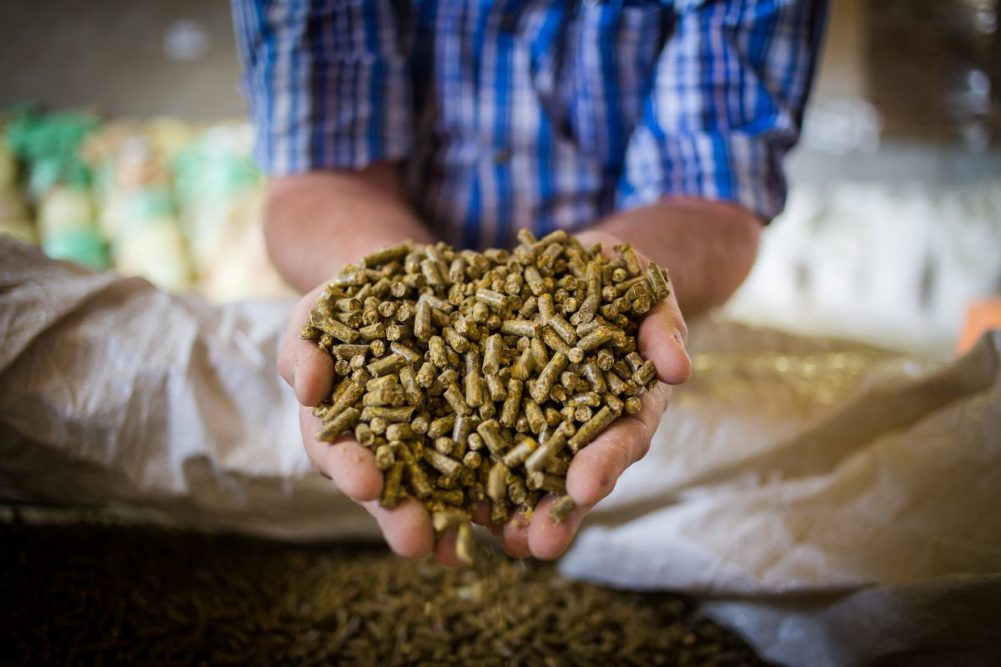YSTAD, SWEDEN — Europe’s feed industry continues to respond to protein sustainability goals across the food value chain with innovation and a desire to play a positive role within the European Union’s Green Deal environmental policy, attendees heard at the FEFAC 30th Congress.
The gathering of over 200 participants and speakers June 14-16 in Ystad, Sweden, was organized by FEFAC, DAKOFO and FS, represented respectively by the European, Danish and Swedish feed industries under the theme of “Resilience of Sustainable EU food production systems – role of circular feed.” Farm animals in the EU-27 consume an estimated 830 million tonnes of feed a year, of which about 20% is produced by compound feed manufacturers.
The Congress featured three workshops dedicated to analyzing the highly varying sustainability pressure points across different farm animal species: farmed fish, ruminants, and poultry and pigs. The workshops showcased practical circular solutions and facilitated a discussion with value chain partners and national authorities on further adaptations to the EU regulatory framework to enable the safe use of nutrients from side streams in the agri-food and fisheries sector to boost the circular economy potential of the livestock and aquaculture industry.
“The Congress allowed to put the spotlight on current sustainability challenges and opportunities that the feed and livestock sectors are facing,” said Pedro Cordero, newly elected president of FEFAC, during closing remarks. “We know that we still have a lot to learn and do, but we will continue to deliver practical and viable tools jointly with our chain partners, which will allow the EU livestock and aquaculture sector to stay on track to achieve most of the relevant EU Green Deal goals.”
The opening address was delivered by Pierre Bascou, acting deputy director-general, DG AGRI, which is responsible for the EU Commission’s policies on agriculture, rural development and the common agricultural policy (CAP). He pointed to a range of EU policy drivers and measures aimed at accelerating the pace of transition toward the improved environmental and climate performance of the livestock sector via CAP National Strategic Plans.
He also confirmed the release of the updated EU Protein Plan at the beginning of 2024, which this time will be broader in scope, covering the different protein sources for feed and food use, while it would also address the circularity role of livestock production in food production systems.
Pekka Pesonen, secretary-general, Copa-Cogeca, which represents farmers and agri-cooperatives, expressed his concerns about EU Green Deal policy objectives aimed at reducing or pushing out the European livestock sector, which he said would undermine EU food security and autonomy goals and rural economies.
Dirk Jacobs, director general of FoodDrinkEurope, the EU’s food industry confederation, called on the upcoming European Commission meeting to allocate funds for a sustainable food investment plan in the next EU legislature’s budget that also reflects the feed industry’s potential to prevent nutrient losses in the food chain.
Asbjørn Børsting, immediate past president of FEFAC, called on an EU regulatory framework that supports the development and uptake of innovation that boost sustainability, such as new genomic techniques and the legal possibility to harvest cover crops for biorefining purposes.
Hanne Søndergaard of ARLA and Marc Sneyders of Bayer presented their company-specific sustainability initiatives on dairy production and more sustainable agronomic approaches respectively to allow for scope 3 GHG emissions reductions, which will be key market drivers for all agricultural production systems. They stressed the importance of a valid economic incentives model for farmers to be able to implement the solutions research and innovation can offer.
“The 30th FEFAC Congress clearly showed our willingness and proactivity as the feed sector to stay ahead of the curve, developing innovative feeding solutions that can help our farmers remain competitive while addressing legitimate societal demands, as expressed in the EU Green Deal,” said Jan Rundqvist, president, FS, said during the Nordic & Baltic Feed Millers meeting organized as part of the Congress.






